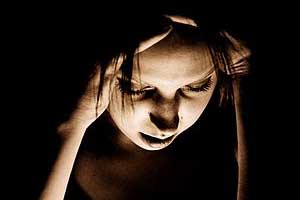- Home
- Editorial
- News
- Practice Guidelines
- Anesthesiology Guidelines
- Cancer Guidelines
- Cardiac Sciences Guidelines
- Critical Care Guidelines
- Dentistry Guidelines
- Dermatology Guidelines
- Diabetes and Endo Guidelines
- Diagnostics Guidelines
- ENT Guidelines
- Featured Practice Guidelines
- Gastroenterology Guidelines
- Geriatrics Guidelines
- Medicine Guidelines
- Nephrology Guidelines
- Neurosciences Guidelines
- Obs and Gynae Guidelines
- Ophthalmology Guidelines
- Orthopaedics Guidelines
- Paediatrics Guidelines
- Psychiatry Guidelines
- Pulmonology Guidelines
- Radiology Guidelines
- Surgery Guidelines
- Urology Guidelines
Migraine triggers and steps to avoid them

A migraine is a type of a headache that comes with its own set of symptoms like nausea, sensitivity to light, sound or smells, extreme fatigue or dizziness.
According to the Migraine Research Foundation, approximately 12% of people in the U.S. suffer from migraines, with nearly 90% of the sufferers having a family history of migraine. They are also more common in women than in men.
“A migraine can be debilitating and can impact daily activities, your family, and social life,” says neurologist Sait Ashina, MD, a headache specialist in the Comprehensive Headache Center within the Arnold-Warfield Pain Center at BIDMC. “Unfortunately, migraine often goes undiagnosed and undertreated.”
The exact cause or reason for migraines is still unknown, but what physicians can help you pinpoint are different triggers for your migraine.
“Triggers are what can set off the symptoms of a migraine headache, which is different than the mechanisms of the head pain,” Ashina says. “Triggers are usually individualized—what could bring on a migraine in one person could not be the case in another person.”
Ashina suggests keeping a headache diary in order to determine—and subsequently avoid—migraine triggers. “Your doctor is going to want to know what you did or ate or how you felt right before a migraine attack,” he explains. “By tracking these occurrences and any details you remember ahead of time, your doctor will be able to find patterns that will guide an individualized treatment plan.”
The American Headache Society offers different resources for headache diaries. There are also a variety of mobile apps available. “List out each migraine, when it happened, how long it lasted and what could have triggered it,” Ashina says.
| Migraine Triggers | Remedies |
| Caffeine | Caffeine can sometimes help relieve symptoms, but high consumption can also lead to rebound headaches. Work with your doctor to alter your caffeine consumption based on your headache diary. |
| Food and beverages (such as chocolate, cheese, citrus fruits, processed meats, artificial sweeteners, soda, beer, wine) | Work with your doctor to alter your diet and moderate food triggers. |
| Changes to weather (such as humidity, heat, or extreme high/low temperatures and atmospheric pressure) | Stay hydrated in extreme heat and avoid being outdoors on particularly cold or windy days. |
| Light exposure | Try to avoid fluorescent light (common in many work areas), wear sunglasses in bright light, or try a blue light filter for digital screens. |
| Sleep deprivation | Create and stick to a regular sleeping pattern |
| Changes to hormones (especially for women) | Your doctor may prescribe non-steroidal anti-inflammatory medications or other anti-migraine medication to use before and during your menstrual cycle. |
| Odor exposure (such as perfume, cleaning products, paint products, cigarette smoke) | Avoid these triggers when possible. |
| Fasting, dieting, dehydration | Do not skip meals and drink plenty of water. |

Disclaimer: This site is primarily intended for healthcare professionals. Any content/information on this website does not replace the advice of medical and/or health professionals and should not be construed as medical/diagnostic advice/endorsement or prescription. Use of this site is subject to our terms of use, privacy policy, advertisement policy. © 2020 Minerva Medical Treatment Pvt Ltd